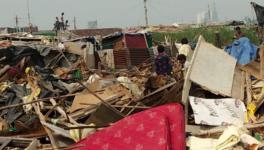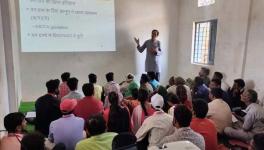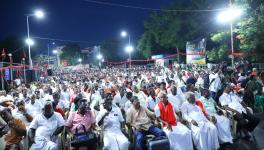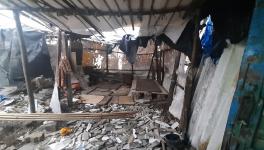COVID-19: Over 54,000 People Affected by Forced Evictions Since Pandemic Struckhom
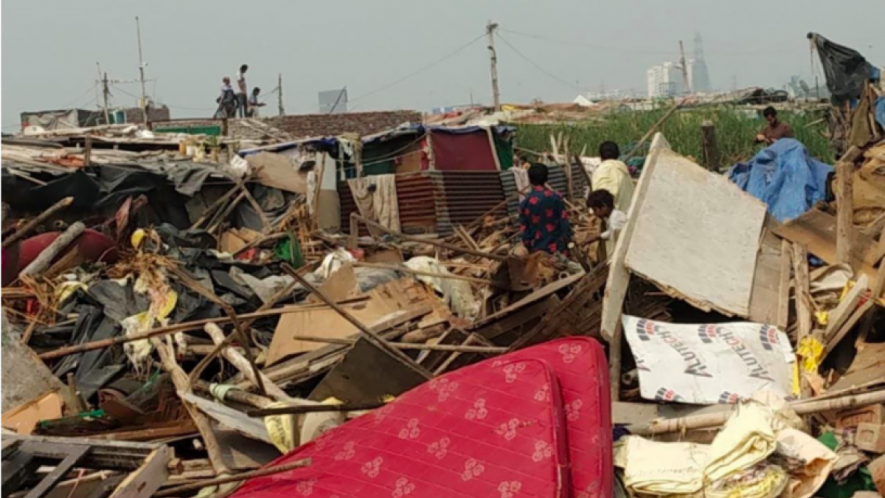
As the pandemic COVID-19 pandemic continues to push India’s vulnerable to the edge, a parallel crisis has been taken shape, that of forced evictions. In Delhi’s Jamia Nagar, families continue to scramble for food and shelter after their houses were demolished by officials from the Delhi Development Authority. (DDA).
Between March 15 and October 31 this year, the Housing and Land Rights Network (HLRN) has documented at least 83 incidents of forced evictions and demolished homes due to action taken by the Centre and 22 states.
These evictions have affected over 54,000 people and resulted in multiple human rights violations. The vast majority of affected persons were not provided prior notice or resettlement. They have been rendered homeless and face heightened exposure to the novel coronavirus as well as having to brave the cold weather and air pollution, compounding their health risks.
Reasons for the documented evictions include construction and infrastructure projects, government and forest land clearance, ‘beautification’ projects, and implementation of court orders.
Speaking to NewsClick, Shivani Chaudhry, the executive director of HLRN said: “The Indian government has strongly advocated staying at home as the best means for protection against COVID-19. In contravention of this directive, state authorities across the country have been demolishing homes of the poor at an alarming rate. This directly increases the risk to their health and vulnerability to the coronavirus. If the state really cared about the lives of the poor, it would have issued a national moratorium on evictions. But clearly, the poor continue to be considered dispensable for promoting other agendas.”
The report by the organisation highlights several incidents of forced eviction without due process. Instances have been reported in Delhi – the city with the highest number of COVID-19 cases in India at present. For instance, in August, the South Delhi Municipal Corporation demolished 40 houses in Bhatt Camp, Badarpur. In September, the Indian Railways destroyed 10 homes in Lawrence Road and six homes in Mansarovar Park. At the onset of winter, the forest department evicted 150 families in Rangpuri Pahadi, leaving them out in the cold without any shelter.
Notably, none of the all the documented instances of evictions complied with international human rights standards and guidelines, including the United Nations (UN) Basic Principles and Guidelines on Development-based Evictions and Displacement. The former and current UN Special Rapporteurs on Adequate Housing have urged states to ban evictions for any reason until the end of the pandemic and for a reasonable period of time thereafter, as being evicted from one’s home during COVID-19 is a “potential death sentence.” The UN Committee on Economic, Social and Cultural Rights has also called for the imposition of a moratorium on evictions.
Given the increasing instances of evictions, civil society groups have demanded the imposition of a national moratorium on evictions, at least until June 2021. This should include a moratorium on rental evictions of those who are unable to pay rent on account of a loss of livelihood. They have also demanded compensation for the loss of housing and personal belongings and support families to rebuild their homes at the same site, or provide adequate alternative housing within a vicinity of two kilometres.
Read More: COVID-19: Close to 20,000 People Forcefully Evicted from their Homes During the Lockdown
Get the latest reports & analysis with people's perspective on Protests, movements & deep analytical videos, discussions of the current affairs in your Telegram app. Subscribe to NewsClick's Telegram channel & get Real-Time updates on stories, as they get published on our website.









